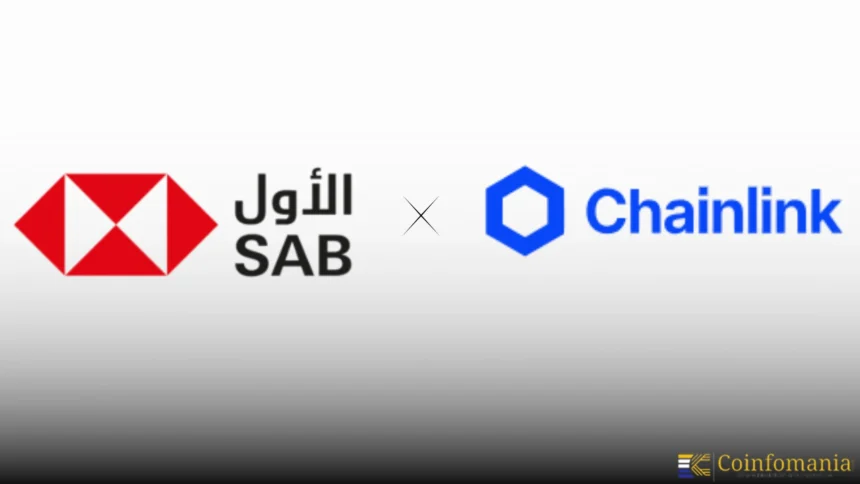Saudi Awwal Bank (SAB) has made a significant move in the realm of finance by announcing a new partnership with Chainlink, aimed at integrating blockchain technology into the country’s financial system. As reported by Cointelegraph, this collaboration will leverage Chainlink’s innovative tools, specifically the Cross-Chain Interoperability Protocol (CCIP) and the Chainlink Runtime Environment (CRE). The intention is to develop modern, secure, and flexible financial applications, reflecting a shift towards faster and more transparent financial practices in Saudi Arabia.
The partnership signifies a crucial step for SAB, which plans to incorporate two vital technologies into its operations. The CCIP enables the secure transfer of money and data across various blockchains, allowing for enhanced connectivity among distinct systems. Meanwhile, the CRE facilitates a secure environment for developers to build and run applications, ensuring reliable integration with both traditional banking and blockchain systems.
This initiative is well aligned with the broader vision of the Saudi government to advance digital growth. By encouraging banks and businesses to adopt innovative technologies, they aim to enhance service delivery. SAB’s engagement with Chainlink is indicative of the growing recognition that blockchain can play a foundational role in mainstream finance, extending beyond the realm of cryptocurrency.
The implications of this partnership are profound for the region. It promises to accelerate payment processes and improve the security of financial transactions, while also fostering new digital financial products. Transparency and trust within financial services are expected to increase as well. Chainlink’s emphasis on security and compliance ensures that the technologies employed will meet the high regulatory standards expected of Saudi banks.
However, this initiative is not without its challenges. Major banks cannot transition to new systems overnight; careful consideration is necessary regarding potential security risks, evolving regulations, and the speed of customer adoption. With financial systems often targeted by hackers, robust protective measures are essential. Moreover, the regulatory landscape for blockchain technology in Saudi Arabia is still developing, requiring SAB to remain compliant with governmental policies. Consumer understanding of blockchain technology poses another barrier, necessitating clear communication and accessible tools for users.
Initially, SAB will likely focus on smaller pilot projects to gauge the effectiveness of blockchain technologies in real-world scenarios. The outcomes of these trials could pave the way for broader applications and expansions. Additionally, SAB may seek collaboration with local startups, regulators, and technology firms to foster a robust digital finance ecosystem in Saudi Arabia. This collaborative approach is crucial for expediting the adoption of new technologies.
The partnership between SAB and Chainlink is emblematic of Saudi Arabia’s commitment to embracing modern finance. Through the use of CCIP and CRE, SAB aims to experiment with innovative financial solutions while adhering to safety standards and regulatory frameworks. For customers, this could translate to quicker payments, enhanced access to financial products, and greater trust in digital services. For the nation, it represents a step towards a future where blockchain technology plays a pivotal role in the economy.
If the collaboration unfolds as intended, SAB could potentially serve as a model for other banks in the region, demonstrating how traditional finance can effectively integrate with blockchain to deliver new financial services.







